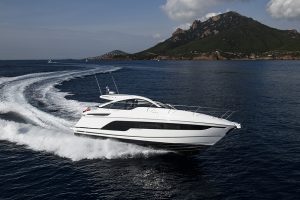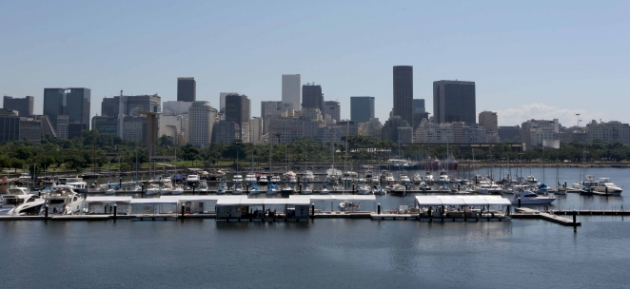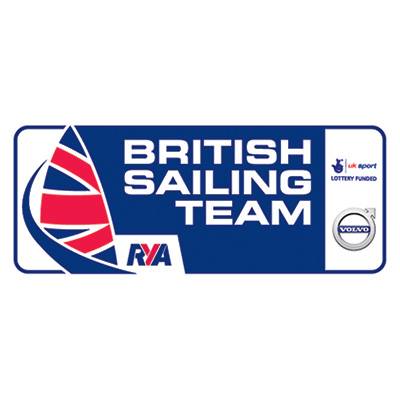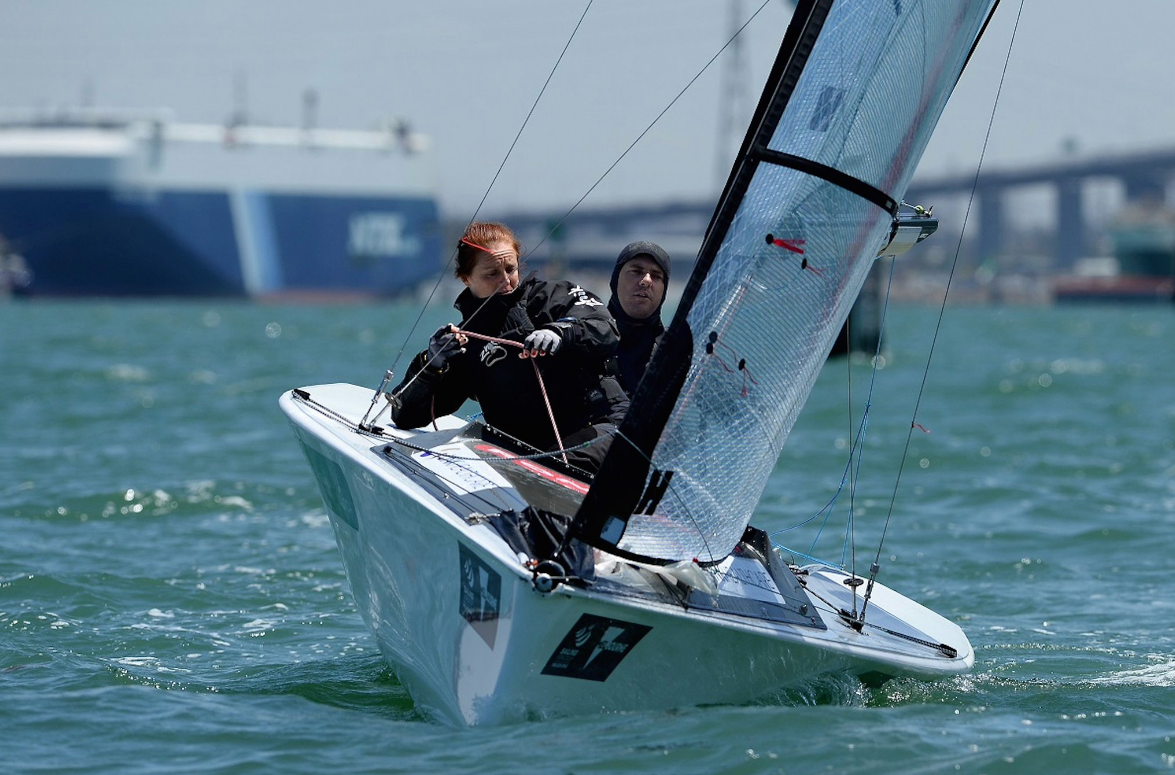Olympic sailing ramp collapses just days before the start of the games
Work is now underway to repair the partially collapsed ramp at the main Olympic sailing venue at Marina da Glória at Guanabara Bay. No one was injured in the incident.
1 August
High tides and stormy seas are being blamed for the collapse of the main ramp at the Marina da Glória Olympic sailing venue.
The structure collapsed on 30 July, less than a week before the start of the Rio 2016 Games on 5 August. No-one was injured in the incident.
Competition sailing is expected to begin on 8 August.
The ramp is the main access point for boats to reach the water.
A coach boat pontoon was also damaged.
Repair work is now underway and is expected to take four days.
It is being carried out by the construction company which initially built the main ramp.
World Sailing, the international governing body for the sport, said that training would not be affected as alternate boat ramps are available.
There is permanent ramp to the side of the damaged structure at Marina da Gloria. There is also a ramp at Flamengo Beach.
World Sailing added that it will be “closely monitoring the efforts”.
14 April
The sailing venue for the Rio 2016 Olympics has been expanded and modernised, and was opened to the public on 7 April.
For almost a decade, access to the Marina da Glória was restricted to boat users. Now, following the €17.1 million refit, Rio’s residents and visitors have access to new leisure facilities.
As well as being expanded and redesigned, the marina has been completely integrated with Flamengo Park, one of the most popular leisure areas in Rio de Janeiro.
“Before, the Marina da Glória did not welcome locals. Today, it is a new, revitalised space with its arms wide open for visitors,” said Marco Aurélio Sá Ribeiro, President of the Brazilian Sailing Confederation.
Located on Guanabara Bay, Marina da Glória has already hosted two test events, in August 2014 and August 2015.
The Rio 2016 Organising Committee will take over the site on 13 July, ahead of the Olympic regattas in August and the Paralympic competitions in September.
“We have complied with our commitments, ahead of time. The facility we are handing over is ready. Our focus now will be on operations,” stated Ricardo Leyser, Brazilian Minister of Sports.
As part of the renovation, the capacity of the venue has been significantly increased. The number of berths in the water has gone from 140 to 415 and the number of dry stacks has increased from 70 to 240.
The marina’s jetties have been redesigned, new electricity and water infrastructure installed and a modern pavilion for athletes has been completed. A car park with space for 470 cars has been built and security for the boats has been improved.
As well as the investment in new sailing facilities, the marina now contains an extensive leisure area for the general public, including four restaurants, a delicatessen, bicycle path and bike racks.
After the Paralympic Games, the venue will be used for sports, cultural events and entertainment. The marina will also offer sailing and diving courses as well as boat rentals and will have a special area for fishing.
The opening of the marina comes as controversy continues over the cleanliness of the water of Guanabara Bay.
Last year, the Associated Press published findings of a five-month study into water quality in the bay. It found evidence of viruses linked to human sewage which can cause stomach or respiratory ailments.
As part of Rio’s bid to host the Olympics, Brazilian authorities had pledged to clean up the polluted bay.
The International Olympic Committee says local organisers have followed testing procedures of the water established by the World Health Organization (WHO) that focus on testing for bacteria and not viruses, and that it has “had reassurances” from the WHO “that there is no significant risk” to the health of competitors.
On 7 April, the same day as the opening of Marina da Glória, Brazilian police gathered samples from some of Rio de Janeiro’s largest sewage treatment plants to determine whether the facilities are actually treating sewage.
AP also reported that documents were sized from at least six sewage plants as part of the police investigation into Rio’s state water and sewage utility, Cedae.
Meanwhile, World Sailing, the international governing body for the sport, has declared itself “satisfied” with preparations for the sailing regattas for the Rio 2016 Olympics. It comes following a four-day visit to Rio at the end of March.
The delegation heard about efforts to improve the situation, such the construction of pipe belt to prevent sewage entering the water near the Marina da Glória venue, and the use of eco-barriers to stop floating debris from entering the bay from rivers.
A World Sailing statement said: “The health and safety of sailors competing at Rio 2016 is paramount and World Sailing remain focused on delivering an excellent Olympic Sailing Competition on a safe and fair field of play.”
World Sailing medical commission representative Dr Nebojša Nikolic, said: “I am satisfied with the planning work that is being done ahead of the Games to ensure that the welfare of sailors remains the top priority and that appropriate water testing and protocols are in place to inform decision making at the Games.”
“We will continue to monitor water testing data closely and to educate sailors and officials on what they can do themselves to reduce health risks ahead of the Games,” he concluded.
Also present in the World Sailing delegation were CEO Andy Hunt, technical delegates Alastair Fox and Scott Perry, and events committee chairman Pablo Masseroni. They met with the Rio 2016 Olympics organising committee, the city and state governments, the state environment institute (INEA) and Rio’s state water and sewage utility, Cedae.
The governing body stressed that having seven racing areas and three reserve days for each of the 10 sailing events provides great flexibility.
The statement added: “Contingency plans for all scenarios from water quality to wind conditions are in place and World Sailing remains confident in delivering a memorable and successful Olympic sailing competition.”
The Rio 2016 Olympics take place 5-21 August and the Paralympics 7-18 September.
The RIBS were taken from the British Sailing Team's training base in Niterói, Rio de Janeiro and were later found… The Australian Sailing Team has confirmed that sailor Liesl Tesch and team official, Sarah Ross were robbed at gunpoint in… Three members of the Spanish Sailing Team were robbed at gunpoint in a popular tourist area close to the Marina… With the final four selected, these are the sailors who will be representing Great Britain in the 2016 Olympics in…Two RIBS stolen from British Sailing Team in Rio
Australian Paralympic sailor robbed in Rio
Spanish Olympic sailors robbed in Rio at gunpoint
Pictures: Meet the GB sailing team for the 2016 Olympics













